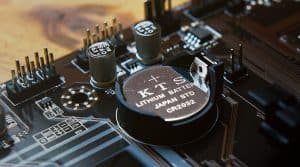
North America’s biggest battery materials processor, Cirba Solutions, announced Wednesday the expansion of its lithium-ion processing facility in Lancaster, Ohio with an investment over $200 million.
It will be one of the largest battery recycling facilities operating in North America, the company said, and estimates it will produce enough battery-grade raw materials from recycled batteries to power more than 200,000 new EVs annually.
This expansion supports the company’s four-year roadmap to increase its recycled battery cathode production by 600%, Cirba said, adding it will also create an estimated 150 jobs to the greater Columbus area, while broadening community outreach and battery education to the public.
“This project supports the growing need for providing critical EV materials for a sustainable and sustained domestic battery supply chain,” David Klanecky, Cirba Solutions CEO said in a media statement.
“This strategic location will supply battery grade metal salts to our customers’ manufacturing facilities and contribute to global reductions in greenhouse gas emissions.”
Cirba Solutions supports a critical stage in the battery supply chain by collecting, transporting, and processing manufacturing scrap and end-of-life batteries. Currently, it is one of the largest producers of black mass from recycled lithium-ion batteries with more than 50 million pounds of EV batteries recycled.
“Expanding the capacity for lithium-ion battery recycling within the United States is imperative as the country seeks to increase domestically sourced battery materials,” Klanecky said.
“This will be one of many of our operational investments to strengthen supply, enhance national security, and promote sustainability principles. It will also bolster more manufacturers’ ability to reach their electrification goals, including those set out in the Inflation Reduction Act.”
Last month, Cirba Solutions announced plans to construct a lithium-ion battery recycling facility in Eloy, Arizona. The 75,000-square-foot location is expected to process enough battery material to power 50,000 EVs annually.
The company aims to open seven processing facilities in North America by 2026.
